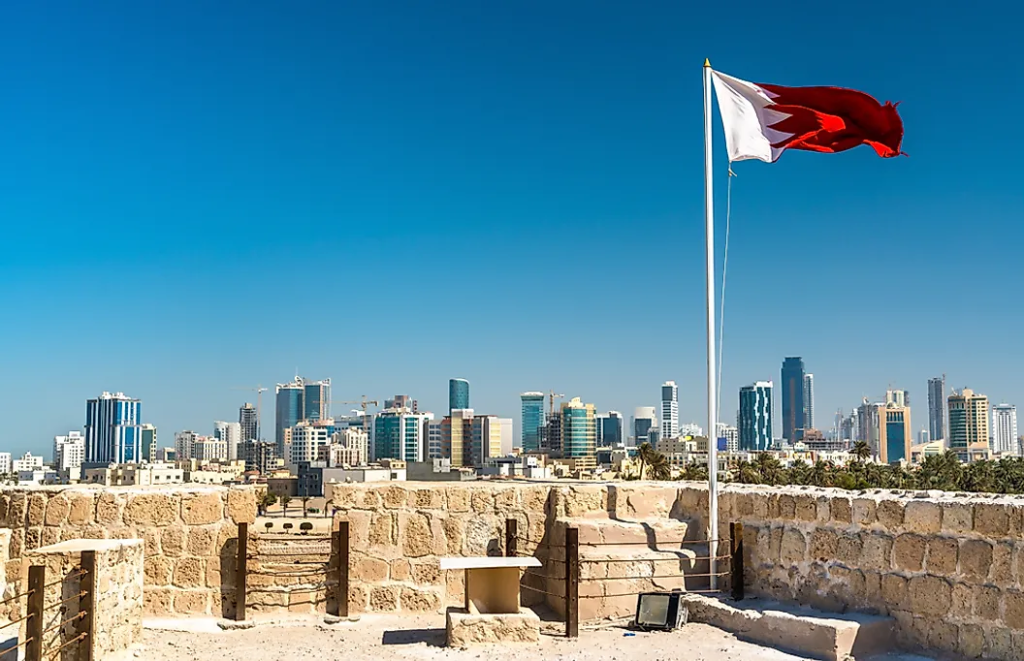Understanding Bahrain’s New Tax Rules for Multinational Firms
by Shethana Sep 10, 2024  9 MIN READ
9 MIN READ

Overview
Bahrain’s National Bureau for Revenue has announced a new law that shows its commitment to global tax rules. This law is called Decree-Law No. (11) of 2024, and it changes how taxes work in Bahrain. The law focuses on a Domestic Minimum Top-up Tax (DMTT). This tax will apply to large multinational enterprises operating in Bahrain. It signals a new phase in corporate taxation in the Kingdom.
The Basics of Bahrain’s New Tax Rules for Multinational Firms
Bahrain has introduced new tax rules that match international standards set by the OECD/G20 Inclusive Framework. This is part of a project on Base Erosion and Profit Shifting, known as BEPS 2.0. The rules mainly focus on large multinational enterprises that earn a lot of money globally.
The key part of this new law is a 15% minimum tax for these companies. This step shows that Bahrain is taking action to keep up with changes in the global tax system. It aims to make sure multinational corporations pay their fair share of taxes.
Overview of the New Tax Legislation
The new tax law, called Decree-Law No. (11) of 2024, changes how the Kingdom of Bahrain handles corporate tax. This law mainly focuses on a new Domestic Minimum Top-up Tax (DMTT), which comes from the OECD’s BEPS 2.0 project.
The law requires a minimum tax of 15% on profits made by multinational enterprises that go over a set revenue threshold. It shows Bahrain’s commitment to keeping its tax rules up to date with international standards and tackling issues related to base erosion and profit shifting. This important law aims to create a fairer and clearer global tax system.
In addition, the law specifies which companies need to follow the DMTT, how to calculate taxable income, and what the compliance rules are. It provides clear guidelines to ensure the new tax system works well.
Key Objectives Behind the Tax Reform
The new tax changes in Bahrain, with the start of the DMTT, aim to reach several important goals. First, they show Bahrain’s commitment to matching its tax system with global rules to stop profit shifting and base erosion. By following the OECD/G20 BEPS 2.0 project guidelines, Bahrain wants to build a clearer and fairer international tax process.
Second, the goal of the reform is to protect Bahrain’s tax base. It does this by making sure multinational enterprises operating in the country pay their fair amount of taxes. This is vital for keeping Bahrain’s public finances stable and helping its economic growth plans.
Finally, the changes place Bahrain as a responsible part of the global effort against tax avoidance. It shows their commitment to working together internationally and practicing good tax behavior.
Impact on Multinational Companies Operating in Bahrain
The DMTT will greatly affect multinational companies in Bahrain. Companies that make over €750 million in global annual revenue need to closely look at the new rules. They should understand how these changes might change their tax obligations.
Businesses must check their current tax setups. They should figure out how these new rules can affect their finances. They also need to make sure they follow all the regulations. If they do not adjust to these changes, it could result in unexpected costs and possible legal issues.
Financial Implications for Multinational Corporations
The start of the DMTT will likely change the tax rate for multinational companies working in Bahrain. Companies that make more than €750 million each year will have to pay a minimum tax rate of 15% on their worldwide income. This is true no matter where they report their profits.
This change may mean higher taxes for some firms, especially those that now pay lower taxes in other locations. So, companies need to look closely at their global income and their tax strategies.
The financial impacts could lead to changes in their business plans, investment choices, and profit-sharing methods. It is important for multinational companies to understand this new tax law and how it affects their business to stay financially stable and in line with the regulations.
Administrative Changes and Compliance Requirements
Navigating the new tax rules in Bahrain means multinational companies have to adapt to some changes and follow strict compliance guidelines in the law. It’s important to understand these new requirements to make sure the transition is smooth and to avoid any fines.
Here’s a look at the main compliance needs:
- Registration: Companies affected by the DMTT must register with the National Bureau for Revenue (NBR) by a set deadline.
- Tax Filing and Payments: The law requires filing tax returns and paying the DMTT on time. This might involve making advance payments during the year.
- Reporting and Documentation: Keeping accurate financial records and necessary documents, and following specific reporting guidelines are important to show compliance with the new tax rules.
These new requirements mean companies will need to develop internal skills or hire outside help. It is vital to improve internal processes and set up strong tax management systems to handle these changes well.
Navigating the Compliance Landscape
Multinational companies in Bahrain must understand new tax rules to stay compliant. The Direct Minimum Tax Theory (DMTT) follows global rules. This means businesses need to rethink their tax plans and how they work with taxes.
It’s important to keep up with the changing laws. Getting expert help and changing tax teams when needed will be vital. Companies should know the reporting deadlines and payment dates. They must also ensure their financial reports are clear and honest. These steps are important for successfully managing the new tax rules.
Also Read: Saudi Arabia leads in IPO activity within the MENA region.
Essential Steps for Ensuring Compliance
To follow Bahrain’s new tax rules on DMTT, multinational companies need to be active and review their current tax plans. It’s important to understand the details of the OECD’s Inclusive Framework on BEPS 2.0 and what it means for your business.
Here’s a simple plan to follow for tax implementation:
- Impact Assessment: Start by checking how the DMTT could affect your company’s effective tax rate around the world. This will help you see how much you might need to change in your tax planning.
- Gap Analysis: Review your current tax policies to find gaps that don’t meet the new rules. Make sure to also check data management, reporting, and internal controls.
- Process Alignment: Adjust your finance and tax teams to meet the new compliance rules. This could mean updating internal systems, using new tax software, or training your tax staff more.
Keep in mind that good planning, careful documentation, and a strong knowledge of the law are key to making this transition smooth. This will help you stay compliant in the coming fiscal years.
Common Pitfalls and How to Avoid Them
As multinational companies in Bahrain face new tax rules, it’s important to know the common problems and take steps to avoid them. The new DMTT is complex, especially for businesses with many constituent entities in different countries, which can cause misunderstandings.
One big issue is misunderstanding the rules about ownership interests. This can lead to wrong calculations of global income and tax payments. Companies need to carefully document and study the ownership details of all their branches and subsidiaries. This helps make sure they follow the relevant legislation.
Also, if companies do not use the same accounting methods and keep data in line across all constituent entities, it can create problems in reporting. This may cause issues during audits. To avoid this, it’s important to set strong internal controls that ensure data is accurate and consistent throughout the organization.
Conclusion
In conclusion, it’s important to understand Bahrain’s new tax rules for multinational companies. These rules are changing how businesses operate in the region. The main goals of the tax reform are to improve compliance and manage financial effects. Companies in Bahrain need to be proactive about these changes and follow the new rules closely. By learning how to comply and avoiding common mistakes, they can handle the new tax regulations better. Stay informed and take action to successfully deal with compliance and improve financial plans with Bahrain’s new tax laws.
Frequently Asked Questions
What is the Deadline for Compliance with the New Tax Rules?
The deadline to follow Bahrain’s new tax rules on the DMTT is coming soon. Multinational companies that make global revenue over a certain limit must register with the National Bureau of Revenue. They need to sort out their tax matters for tax purposes before the start date. This date is for fiscal years that begin on or after 1 January 2025.
How Will This Tax Affect Companies with International Operations?
This new tax law is the first one like it in the Middle East. It affects the tax rate for big multinational enterprises that have international operations and global revenues above a certain limit. This could lead to higher tax duties for them in Bahrain.
About Arnifi
Arnifi is digital first Corporate service provider helping companies enter the Middle East region, starting with UAE and Saudi Arabia markets. Founded and backed by professionals from Amazon, Souq and other large companies operating in KSA – the team understands what it takes to succeed as a startup in both UAE and Saudi Arabian markets, apart from going through the setup process multiple times. Arnifi will provide a truly digital experience to entry and scale up of companies both UAE and Saudi Arabia. Discover tailored solutions and strategic partnerships that propel your business forward. Check out at – www.Arnifi.com for more details.
ALSO READ: How is manufacturing sector in Saudi Arabia, its growth and future opportunities
For More details you can check out our products and offers here.
Top UAE Packages

Related Articles
Top UAE Packages



